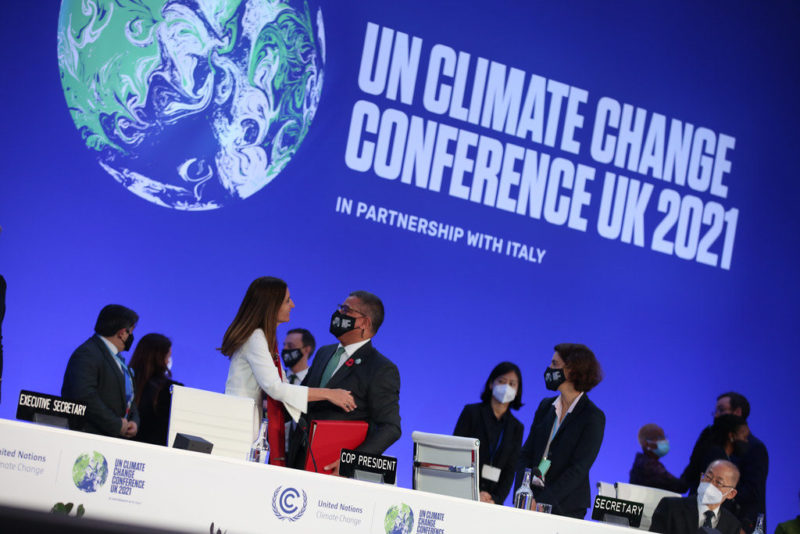COP26 Draft Agreement: Released For The World To Judge
By Taylor Sheppard, Kieran Hunter and Cameron Sweeney
We are all familiar with the term ‘Paris Agreement’, right?
Since 2015, 195 countries have pledged to hold the increase of the global average temperature to well below 2°C above pre-industrial levels, and have been striving to limit the temperature increase to 1.5°C.
We are well aware that this agreement has not been carried out in the way it should have been, so it is time for an upgrade. Could this be the make or break for Glasgow and it’s people?
Fast forward to 2021 where, in our beautiful city of Glasgow, negotiators from nearly 200 countries will work from a draft in the hope to strike a final deal before the ending of the summit on Friday.
The first draft of the “COP cover decision” urges countries to “revist and strengthen the 2030 targets in their nationality determined contributions, as necessary to align with the Paris Agreement temperature goal by the end of 2022.”
This means that countries are pushed to uphold (carry out) their pledges within the Paris Agreement more efficiently and quickly than they have been doing so far.
For the first time, the draft calls for countries to phase out coal and fossil fuels. It also calls for “just transitions to net zero emissions” and highlighted the need to assist developing countries suffering greatly from the effects of climate change.
Alok Sharma, the President for COP26, stated “We are making progress at COP26, but we still have a mountain to climb over the next few days. What has been collectively committed to go someway, but certainly not all the way, to keeping 1.5°C within reach.” This emphasises the importance of countries carrying out their assurance (commitments) as stated within The Paris Agreement.
At first, advancements at COP26 pointed towards a temperature increase of 1.8°C, but a new analysis carried out by Climate Action Tracker discovered that the pledges made so far will only limit warming to 2.4°C.
Further information on the draft agreement can be found here: https://unfccc.int/sites/default/files/resource/Overarching_decision_1-CMA-3.pdf
We now face the issue of countries not doing things quick enough. There have been very little pledges to take action during this decade, meaning that a lot of carbon dioxide will still be emitted into the atmosphere throughout the next ten years. This means that our Earth will still be getting warmer up until at least 2031.
The Climate Change Performance Index monitors various countries climate change progress. This has been produced annually (every year) since 2005, covering 61 countries who represent 92 percent of global emissions. The data shows that not one country is doing enough to combat the effects of climate change. The highest three spots are taken by Denmark, Sweden and Norway, where the US, Australia and Canada fall short within the bottom rankings.
It is clear that countries still have a huge way to go to reduce global emissions and reverse the effects of climate change. If the Glasgow Agreement goes ahead, pledges from leaders around the world have to be carried out more effectively and at a much quicker speed. Without this, our planet will be irreversibly damaged (damage cannot be undone).
https://www.aljazeera.com/news/2021/11/10/un-climate-agency-publishes-draft-of-final-glasgow-cop26-deal


